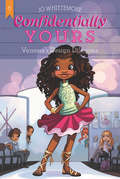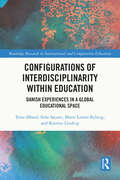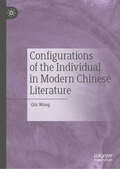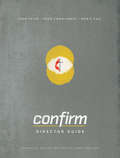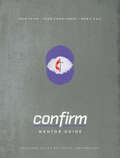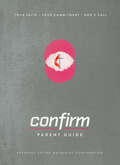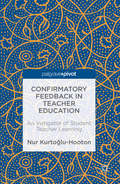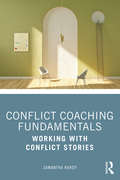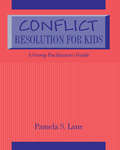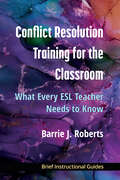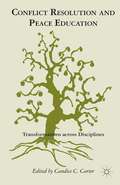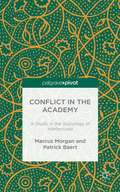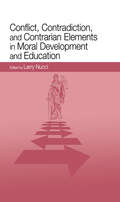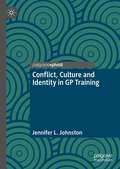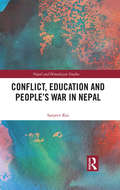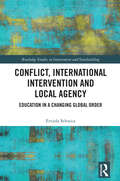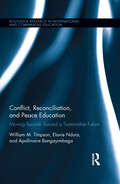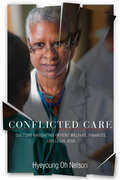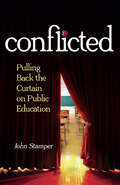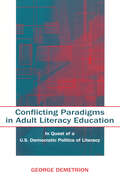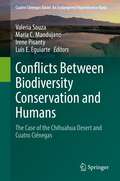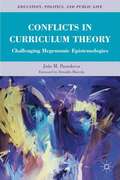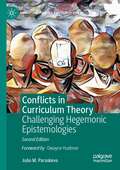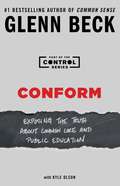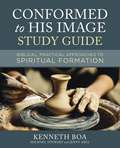- Table View
- List View
Confidentially Yours #6: Vanessa's Design Dilemma
by Jo WhittemoreIn the sixth installment of the series that readers of The Cupcake Diaries and The Baby-Sitters Club will love, advice columnist and resident fashionista Vanessa Jacobs must avert a major disaster in order to save the school newspaper and her fashion show. When middle school style gurus Vanessa Jacobs and Katie Kestler decide to hold a fashion show to introduce their clothing line to the entire town, they’re beyond thrilled to learn that a buyer from a local boutique will be attending. This is their chance to break into the fashion world! But when Vanessa advertises runway model tryouts at school, she encounters a posting that uses the Lincoln Letters advice column to encourage students to guess the identities of the anonymous students who have been writing to the newspaper about their embarrassing problems. To make matters worse, Vanessa and Katie encounter a major creative dilemma that could jeopardize their reputation as designers. With the future of their fashion show on the line and Lincoln’s Letters facing potential extinction, will Vanessa be able to catch the Advice Column Killer in the act and still pull off a successful runway show? Or will it be lights, camera, disaster?
Configurations of Interdisciplinarity Within Education: Danish Experiences in a Global Educational Space (Routledge Research in International and Comparative Education)
by Trine Øland Sofie Sauzet Marie Larsen Ryberg Katrine LindvigThis book explores how everyday life within educational institutions changes in response to ideas of interdisciplinarity at policy level. It provides new insights into different configurations of interdisciplinarity, which traverses all levels of the Danish educational system. Offering a novel perspective to interdisciplinarity in terms of its configurations, the book discusses the Danish educational system and its current transformations, showing how progressive ideas are entangled with new forms of accountability and complex responsibilities. It identifies the concrete challenges that interdisciplinarity is expected to solve, and the organizational changes resulting from the solutions introduced, arguing that interdisciplinarity in education is neither a uniform or consistent process, nor are the kinds of disciplining it may yield. This book will appeal to academics, researchers, and post-graduate students in the fields of interdisciplinary education, pedagogy, comparative education and northern European educational and welfare systems.
Configurations of the Individual in Modern Chinese Literature
by Qin WangThis book aims to demonstrate the multiplicity of configurations of the individual in modern Chinese literature through analyzing several classic texts written by Zhou Zuoren, Lu Xun, Lao She, and Mu Shiying. It attempts to refresh our understanding of the history of modern Chinese literature and indirectly responds to the controversial issue of “individual rights” (or “human rights”) in present-day China, showing that in modern Chinese literature, various configurations of the individual imply political possibilities that are not only irreconcilable with each other, but irreducible to the determination of the modern discourse of “individualism” introduced by the West. A groundbreaking work, it will give valuable context to political scientists and other scholars seeking to understand what "China" means in the 21st century.
Confirm Director Guide: Your Faith. Your Commitment. Gods Call.
by UnknownConfirmYour Faith. Your Commitment. God’s Call.Too often confirmation has been downgraded to the role of a checkpoint along the faith journey. The Confirm family of resources reclaims confirmation as the first step on a journey that leads to a mature, adult faith. Confirm treats confirmation as more than a decision. Instead, it is the beginning of a conversation about what it means to be a Christian, living out your faith, your commitment, and God’s call.Confirm is an easy-to-follow and fully customizable confirmation program that can be used virtually any church setting and with a wide variety of schedules. You have the option to schedule your lesson choices and the tools to organize your own confirmation program over the course of a school year, a 3-year span, or in any other way that meets your needs without having to purchase additional customizable content.With flexible and easy-to-understand materials, Confirm provides students with the basic beliefs of a theologically sound, United Methodist faith while engaging them in creative and thought-provoking activities to help them internalize what they’ve learned. Confirm also embraces the importance of community in the journey of faith development, and provides materials to encourage cooperation with parents and mentors in the confirmation process and beyond.This helpful guide provides direction for creating an effective discipleship path for teens using confirmation at your church. Complete with detailed instructions, you will learn how to integrate Confirm with the church’s youth ministry program and other ministries throughout the church. In addition, you will be provided tools for creating specific confirmation assessments and reasonable expectations for youth, pastor, parents, and confirmation leaders.
Confirm Mentor Guide: Your Faith. Your Commitment. Gods Call.
by Michael A Novelli/Novelli Creative LLCConfirmYour Faith. Your Commitment. God’s Call.Too often confirmation has been downgraded to the role of a checkpoint along the faith journey. The Confirm family of resources reclaims confirmation as the first step on a journey that leads to a mature, adult faith. Confirm treats confirmation as more than a decision. Instead, it is the beginning of a conversation about what it means to be a Christian, living out your faith, your commitment, and God’s call.Confirm is an easy-to-follow and fully customizable confirmation program that can be used virtually any church setting and with a wide variety of schedules. You have the option to schedule your lesson choices and the tools to organize your own confirmation program over the course of a school year, a 3-year span, or in any other way that meets your needs without having to purchase additional customizable content.With flexible and easy-to-understand materials, Confirm provides students with the basic beliefs of a theologically sound, United Methodist faith while engaging them in creative and thought-provoking activities to help them internalize what they’ve learned. Confirm also embraces the importance of community in the journey of faith development, and provides materials to encourage cooperation with parents and mentors in the confirmation process and beyond.The Mentor Guide provides an overview of the confirmation process and equips mentors with suggested relationship building ideas, as well as providing some of the do’s and don’ts when taking on the role of mentor. A mentor doesn’t need to be a trained theologian or someone who has all the answers. Rather, a mentor is an adult who is mature in the faith and can walk alongside a young person the confirmation journey.
Confirm Parent Guide: Your Faith. Your Commitment. Gods Call.
by CokesburyConfirmYour Faith. Your Commitment. God’s Call.Too often confirmation has been downgraded to the role of a checkpoint along the faith journey. The Confirm family of resources reclaims confirmation as the first step on a journey that leads to a mature, adult faith. Confirm treats confirmation as more than a decision. Instead, it is the beginning of a conversation about what it means to be a Christian, living out your faith, your commitment, and God’s call.Confirm is an easy-to-follow and fully customizable confirmation program that can be used virtually any church setting and with a wide variety of schedules. You have the option to schedule your lesson choices and the tools to organize your own confirmation program over the course of a school year, a 3-year span, or in any other way that meets your needs without having to purchase additional customizable content.With flexible and easy-to-understand materials, Confirm provides students with the basic beliefs of a theologically sound, United Methodist faith while engaging them in creative and thought-provoking activities to help them internalize what they’ve learned. Confirm also embraces the importance of community in the journey of faith development, and provides materials to encourage cooperation with parents and mentors in the confirmation process and beyond.The Parent Guide provides an overview of confirmation and helps the parent and family establish their role in the process. The guide includes discussion starters, activities and devotional suggestions for use at home. As teens prepare to take the vows of confirmation, they need to be surrounded by mature Christian adults who can love, guide, and nurture them. This love and nurturing begins at home, with the youth’s parent or guardian.
Confirmatory Feedback in Teacher Education: An Instigator of Student Teacher Learning
by Nur Kurtoglu-HootonThis book examines the intricacies of the discourse of post-observation feedback that student teachers receive following group teaching practice. In particular, the author explores confirmatory feedback as an instigator of student teacher learning, and examines the potential links between feedback and change. The book will be of specific interest to researchers, teacher educators and other professionals involved in feedback-giving settings.
Conflict Coaching Fundamentals: Working With Conflict Stories
by Samantha HardyWe naturally create stories to help us making meaning of our world, but in conflict situations the kinds of stories we typically tell ourselves can actually make it harder for us to manage and resolve the conflict constructively. This book provides an accessible framework for understanding why people tell their conflict stories the way they do, and how to help them move away from conflict stories that prevent them from understanding and responding to conflict in an effective way. Presented using highly engaging and accessible cases, the book is designed to help people working with others in conflict to fully support them by understanding which areas of the conflict story to focus their attention on, and using practical techniques to support people to rewrite their story into a more constructive one to better manage the situation. The book also provides practical strategies to help people who are themselves in a conflict scenario to rewrite and enact a version of their conflict story that helps them to more constructively manage, and often resolve, their situation. A conflict management coaching system is introduced that is designed to address the particular problems created by dysfunctional conflict stories. This is a book specifically for those who work with people in conflict (mediators, conflict coaches, managers, lawyers, HR staff, teachers) and also for anyone who wishes to better understand their own experience of conflict.
Conflict Resolution For Kids: A Group Facilitator's Guide
by Pamela S. LaneProviding a format for a conflict resolution children's group, this guide is invaluable for the group facilitator - the teacher or counsellor in a school or mental health residential treatment program. It explores theoretical background in facilitating a children's group, and includes numerous activities and concrete tools for implementation of a group process lab. Co-operative learning activities provide task-orientated "ah- ha!" experiences for children working on their interpersonal and problem- solving skills.; Appropriate for use with children in grades K-6, it is also useful as a supplemental textbook in school counsellor education curriculum.
Conflict Resolution Training for the Classroom: What Every ESL Teacher Needs to Know
by Barrie RobertsESL instructors without a background in conflict resolution (CR) who teach intermediate to advanced courses at colleges, universities, or in Intensive English Programs, may want to provide students with valuable negotiation and mediation skills. Author Barrie J. Roberts is an experienced ESL teacher, lawyer, mediator, and Alternative Dispute Resolution (ADR) Administrator for southern California Superior Courts. In this book, she draws upon her experience using these activities in a variety of ESL settings and courses with students from all over the world to inspire other ESL teachers to add CR approaches to their activities, lessons, and courses. Following an introduction to conflict resolution, Conflict Resolution Training for the Classroom shows how much of the teaching of CR is similar to teaching ESL. It outlines ways to apply negotiation and mediation to ESL activities, how to prevent and resolve conflicts, how to use specific types of role-plays to address conflicts, and how to design successful activities. The book also includes a list of resources and sample syllabi.
Conflict Resolution and Peace Education
by Candice C. CarterPeace education includes lessons about conflict sources, transformation and resolution. While featuring field-based examples in multiple disciplines, including political science, anthropology, communication, psychology, sociology, counseling, law and teacher training, this book presents real cases of conflict work. Explained are concepts underlying conflict transformation and strategies that have been adapted for use in professional practice. The contributors describe formal peace education with university students in different fields of study and informal learning of adults in community settings. Comprehensively, this book supports professionals who specialize in conflict work as well as instructors and learners in several disciplines which all respond to conflict.
Conflict in the Academy: A Study in the Sociology of Intellectuals
by Marcus Morgan Patrick BaertExamining an intramural conflict that erupted within the English Faculty at Cambridge University in the early 1980s, this book develops a theoretical analysis of disputes as they unfold within the academy and explores the broader historical shifts within Higher Education and how these related to developments in Continental Europe.
Conflict, Contradiction, and Contrarian Elements in Moral Development and Education
by Larry NucciThe premise of this book is that individuals and societies have an inexorable urge to morally develop by challenging the assumptions of the previous generation in terms of what is right and wrong. The focus is on the nature and functional value of conflicts and challenges to the dominant moral and social values framework. Through this analysis, individuals develop moral character through conflict with their local authority figures, including parents. The moral structure of societies evolves through intergenerational challenges to and contradictions with the dominant social order. The book is divided into three parts to help frame this discussion:*Part I directly takes up the issue of resistance as it occurs at a cultural level, and the implications of such resistance for moral education and socialization.*Part II explores the normative forms of adolescent resistance and contrarian behavior that vex parents and teachers alike.*Part III brings back the issue of societal structure and culture to illustrate how negative features of society--such as racial discrimination and economic disparity--can feed into the construction of negative moral identity in youth posing challenges to moral education.Taken together, this collection presents a rich counterpoint to the pictures of moral growth as the progressive sophistication of moral reasoning or the gradual accretion of moral virtues and cultural values. It will benefit those in developmental, social, and cognitive psychology, as well as sociology, political science, and education.
Conflict, Culture and Identity in GP Training
by Jennifer L. JohnstonThis book explores the identity work and conflicted perspectives of general practitioner (GP) trainees working in hospitals in the UK. Drawing on empirical and theoretical scholarship, and privileging the analysis of social language-in-use, Johnston describes primary care medicine as a separate paradigm with its own philosophy, identity and practice. Casting primary and secondary care in historical conflict, the perceived lower status of primary care in the world of medicine is explored. Significant identity challenges ensue for GP trainees positioned at the coalface of conflict. Problematising structures of GP training and highlighting how complex historical power dynamics play out in medical training, the author advocates for radical change in how GPs are trained in order to manage the current primary care recruitment and retention crisis.
Conflict, Education and People's War in Nepal (Nepal and Himalayan Studies)
by Sanjeev RaiThis book presents an overview of the democracy movement and the history of education in Nepal. It shows how schools became the battleground for the state and the Maoists as well as captures emerging trends in the field, challenges for the state and negotiations with political commitments. It looks at the factors that contributed to the conflict, and studies the politics of the region alongside gender and identity dynamics. One of the first studies on the subject, the book highlights how conflict and education are intrinsically linked in Nepal. It illustrates how schools became the centre of attention between warring groups and how they were used for political meetings and recruitment of fighters during the political transitions in a contested terrain in South Asia. It brings to the fore incidents of abduction and killing of teachers and students, and the use of children as porters for arms and ammunitions. Drawing extensively on both primary and secondary sources and qualitative analyses, the book provides the key to a complex web of relationships among the stakeholders during conflict and also models of education in post-conflict situations. This book will interest scholars and researchers in education, politics, peace and conflict studies, sociology, development studies, social work, strategic and security studies, contemporary history, international relations, and Nepal and South Asian studies.
Conflict, International Intervention and Local Agency: Education in a Changing Global Order (Routledge Studies in Intervention and Statebuilding)
by Ervjola SelenicaThis book analyses international interventions in the education sector of conflict-affected countries in a world order shifting towards multipolarity.The work presents a genealogy of interventions in the education sector and unravels which agendas, among security, peace, humanitarianism and emergency, underpin such interventions. By using a comparative case study analysis across three regional expanses and, more specifically, three countries – Kosovo, Niger and Jordan – the book aims to contribute to reflections on the interaction between the national and the international. The research finds that an overarching stabilization imperative has informed international projects on education reform in the three respective countries. As the world is becoming increasingly multipolar and new threats are being framed as challenging and threatening the security of Western donors, local actors have more agency towards international templates of intervention. The book shows how contemporary processes of state- and nation-building in conflict-affected global peripheries are shaped by substantial forms of external intervention, in which practices of sovereignty and statehood are continuously supervised and negotiated. The author advocates for a re-adaptation of International Relations theoretical lenses, which goes beyond the methodological nationalism and disciplinary parochialism that has characterized much of the existing literature on state making/unmaking and international interventions in a globalized world.This book will be of much interest to students of education, international intervention, peace studies, security studies and International Relations.
Conflict, Reconciliation and Peace Education: Moving Burundi Toward a Sustainable Future (Routledge Research in International and Comparative Education)
by William Timpson Elavie Ndura Apollinaire BangayimbagaWhen the September 11, 2001 attacks in the United States occurred—causing that nation to wage wars of revenge in Afghanistan and Iraq—the people of Burundi were recovering from nearly forty years of violence, genocide and civil wars that had killed nearly one million and produced another million refugees. Here in this small East African nation, one of the four poorest nations on earth, however, was a desire for reconciliation—not revenge—and it still runs deep today. The University of Ngozi in northern Burundi was created in 1999 and is now dedicated to peace, reconciliation and sustainable development. People in this region tell remarkable stories of tragedy and recovery amid these horrors. Their stories can inspire others to preserve their humanity and resist the urge to continue the violence, focusing instead on forgiveness, reconciliation and a better way forward. This volume presents case study analysis while pointing to the promise of a new kind of education that is committed to sustainable peace and development. The lessons here for the rest of the world are deep and inspiring.
Conflicted Care: Doctors Navigating Patient Welfare, Finances, and Legal Risk
by Hyeyoung Oh NelsonAn eye-opening and compelling ethnography about how doctors make decisions The oath that doctors take to "do no harm" suggests that patient welfare is at the center of what it means to be a successful medical professional. It is also understood, however, that hospitals are not only vessels for medical care—they are businesses, educational institutions, and complex bureaucracies with intricate codes of etiquette that dictate how each staff member should approach situations with patients. In Conflicted Care, Hyeyoung Oh Nelson provides an in-depth look at the decision-making processes of physicians at a large, prestigious academic medical center—that she calls Pacific Medical Center—and finds that more often than not patient wellbeing is only one of several factors governing day-to-day decisions. The steps physicians take reveal a kind of hidden curriculum of the medical world, one that is guided by status and hierarchy, bureaucracy, norms for consulting with third-parties, regulations for interactions with patients, and medical uncertainty. While at an institutional and individual level patient care continues to be integral to everything the physicians do, they are forced to reconcile that vow with these other, often-conflicting internal logics. Harm, Nelson argues, is thus built into the practice of medicine in the United States. This harm can take the form of unnecessary treatments and consultations or inadequate treatment for pain to motivate specialist intervention that would otherwise be resisted. These and other practices have the overall consequence of significantly driving up inpatient care costs, which then results in patients forgoing needed, ongoing treatment once they receive their medical bills. Drawing on a deep ethnography of physicians in the Internal Medicine Service unit, Nelson offers a sharp assessment of current policies aimed at alleviating medical costs and explains why they are ineffective. She concludes by offering novel policy and practice recommendations for health care practitioners, policy makers, and healthcare institutions.
Conflicted: Pulling Back the Curtain on Public Education
by John StamperAt what point can a Christian teacher no longer be part of a public education system that requires them to participate in teaching destructive ideologies and advancing immoral agendas on young children? John Stamper reached that tipping point as a teacher in the Chicago Public School System and made the decision to quit his job and pull back the curtain on what’s happening in public schools today. You’ve seen the stories on the news – our national education system has an agenda, being implemented under the guise of fairness, equality, and racial justice to children. However, this book will open your eyes to: The indoctrination process through mandatory teacher training that implements these radical ideologies in schools without parental knowledge The danger and division created by critical race theory and gender theory being promoted in public schools How Marxist, socialist, and communist ideologies are dominating public schools, and how you move forward with homeschooling your children For generations, teachers have been excellent role models, investing their time and energy into fundamental lessons. However, today a growing number think they, the school board, and their school system know more than parents about what should be taught to students. You need to know what is going on in your child’s school and be prepared for the conflict of values that you may have to face. You have options.
Conflicting Paradigms in Adult Literacy Education: In Quest of a U.S. Democratic Politics of Literacy
by George DemetrionThe book provides a historical overview of adult literacy theory, policy, practice, and research from the mid-1980s to the present. The main focus is a descriptive analysis of three distinctive schools of literacy: the Freirean-based participatory literacy movement grounded in oppositional politics and grass-roots community activism; the British-based New Literacy Studies that focuses on the ways in which diverse students utilize various literacy practices in their daily lives; and the U.S. federal government's focus on functional literacy linked to a 45-year policy emphasis on workforce readiness. These three schools of thought lead to substantially different implications over such critical areas as curriculum, assessment and accountability, and the socio-cultural role of literacy, policy, and political culture, which are discussed throughout the chapters of the book. This discussion includes a chapter on research traditions that closely parallels these perspectives on literacy education.Demetrion argues that unless values grounded ultimately in political culture emerge, it is exceedingly unlikely that the adult literacy field will be able to move from its current marginalized status toward that of achieving the level of public and policy legitimacy many believe it needs for its long-term institutional flourishing. It is argued that any settlement of this issue must be accomplished in the field of practice rather than the ground of theory, even as theoretical insight can help to frame the issues.Conflicting Paradigms in Adult Literacy Education: In Quest of a U.S. Democratic Politics of Literacy speaks to a wide audience, including not only the adult literacy community, but anyone interested in educational theory, practice, policy, research traditions, or political culture, and more fundamentally, in their intersection. Given the breadth of the topics covered, as well as the broad scope of the argument, the book is also meant for those who would like to gain a useful perspective on contemporary U.S. culture, through the window of these conflicting tensions within the field of adult literacy education.
Conflicts Between Biodiversity Conservation and Humans: The Case of the Chihuahua Desert and Cuatro Ciénegas (Cuatro Ciénegas Basin: An Endangered Hyperdiverse Oasis)
by Valeria Souza Luis E. Eguiarte Irene Pisanty María C. MandujanoThis book takes readers on a journey through the history of water in the Coahuila desert. It starts by describing the beauty and mysteries of the landscape, and then explores the rock art of the original desert cultures in Coahuila, offering readers a glimpse of the sacred nature of water in the desert, as well as the rituals surrounding it. Moving on to the colonial times and the post- independence development of the region, it discusses early water management, and explores how water is managed in modern times, as well as the legal complications of the law, and how these faulty laws, designed for less arid regions, have affected a highly diverse wetland, the Cuatro Ciénegas oasis. The book then examines the biological consequences of the water loss for the aquatic plants and animals in Churince – a now extinct system within Cuatro Ciénegas. Further, it addresses how even bacteria can become extinct in this hyper-diverse microbial oasis. Lastly, after this despair and sense of loss, the book provides hope, offering suggestions for how we can transform the future, from a social and educational point of view as well as through good science and changes in policy.
Conflicts in Curriculum Theory: Challenging Hegemonic Epistemologies (Education, Politics and Public Life)
by João M. ParaskevaThis book challenges educators to be agents of change, to take history into their own hands, and to make social justice central to the educational endeavor. Paraskeva embraces a pedagogy of hope championed by Paulo Freire where people become conscious of their capacity to intervene in the world to make it less discriminatory and more humane.
Conflicts in Curriculum Theory: Challenging Hegemonic Epistemologies (Education, Politics and Public Life)
by João M. ParaskevaSince its original publication, Conflicts in Curriculum Theory has firmly established itself as the key volume that not only advanced alternative ways to think about education and curriculum but also introduced innovative scholarship and a radical conceptual grammar for the field. In this revised second edition, Paraskeva addresses current epistemological shifts and avenues within and beyond counter-dominant Eurocentric curriculum perspectives. In this second edition, which includes a new introduction, he provides a critical examination of the modern Eurocentric curriculum and introduces readers to new theoretically rich concepts of "curriculum momentism," "curriculum involution", and "curriculum Occidentosis", pushing the curriculum debate far beyond the classical Eurocentric matrix.
Conform: Exposing the Truth About Common Core and Public Education (The Control Series #2)
by Glenn BeckGlenn Beck, the New York Times bestselling author of The Great Reset, considers the hot-button issue of education in the US, exposing the weaknesses of the Common Core school curriculum and examining why liberal solutions fail.Public education is never mentioned in the constitution. Why? Because our founders knew that it was an issue for state and local governments—not the federal one. It&’s not a coincidence that the more the federal government has inserted itself into public education over the years, the worse our kids have fared. Washington dangles millions of dollars in front of states and then tells them what they have to do to get it. It&’s backdoor nationalization of education—and it&’s leading us to ruin. In Conform, Glenn Beck presents a well-reasoned, fact-based analysis that proves it&’s not more money our schools need—it&’s a complete refocusing of their priorities and a total restructuring of their relationship with the federal government. In the process, he dismantles many of the common myths and talking points that are often heard by those who want to protect the status quo: Critics of the current system are just &“teacher bashers&”…Teachers&’ unions put kids first...Homeschooled kids suffer both academically and socially…&“local control&” is an excuse to protect mediocrity…Common Core is &“rigorous&” and &“state led&”…Critics of Common Core are just conspiracy theorists…Elementary school teachers need tenure...We can&’t reform schools until we eradicate poverty…school choice takes money away from public schools…Charter schools perform poorly relative to public schools. There is no issue more important to America&’s future than education. The fact that we&’ve yielded control over it to powerful unions and ideologically driven elitists is inexcusable. We are failing ourselves, our children, and our country. Conform gives parents the facts they need to take back the debate and help usher in a new era of education built around the commonsense principles of choice, freedom, and accountability.
Conformed to His Image Study Guide: Biblical, Practical Approaches to Spiritual Formation
by Kenneth D. Boa Jenny Abel Michael StewartHow can I know God better and, in the process, learn to live out my identity and calling? Too many readers finish a book or Bible study only to be left with unanswered questions about how they can actively and practically nourish their spiritual desires.Intended for use alongside the Conformed to His Image Video Study and as a complement to Kenneth Boa&’s highly regarded Conformed to His Image textbook, the Conformed to His Image Study Guide will help you formulate answers and engage in spiritual practices as you review key concepts and truths of what it means to conform to the image of Christ. Designed for use by independent learners, in small-group and church settings, or in college and seminary courses, this study guide will help you build your life on a biblical foundation, encapsulated in twelve facets of authentic Christian spirituality, which include:Relational Spirituality: Loving God Completely, Ourselves Correctly, and Others CompassionatelyParadigm Spirituality: Cultivating an Eternal versus a Temporal PerspectiveDisciplined Spirituality: Engaging in the Historical DisciplinesExchanged Life Spirituality: Grasping Our True Identity in ChristMotivated Spirituality: A Set of Biblical IncentivesDevotional Spirituality: Growing in Relationship with GodHolistic Spirituality: Every Component of Life under the Lordship of ChristProcess Spirituality: Process versus Product, Being versus DoingSpirit-Filled Spirituality: Walking in the Power of the SpiritWarfare Spirituality: The World, the Flesh, and the DevilNurturing Spirituality: A Lifestyle of Evangelism and DiscipleshipCorporate Spirituality: Encouragement, Accountability, and WorshipThe Conformed to His Image Study Guide is an invaluable tool for anyone who desires to follow Christ more closely.
